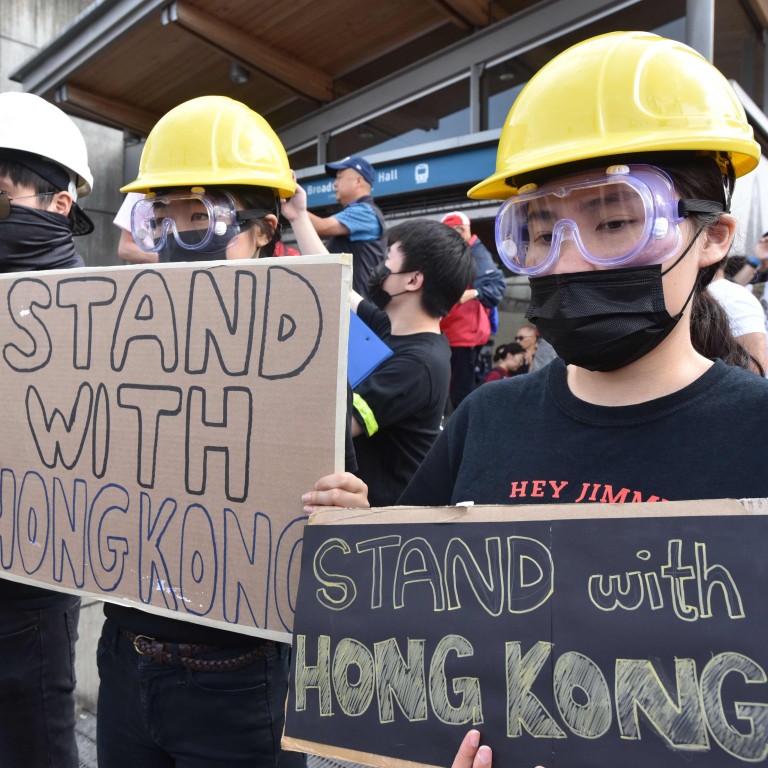
Could Hong Kong protests sway the Canadian election?
- With the main parties neck and neck, the Conservative leader raises the issue in an appeal to both expats and the Chinese diaspora
- It is a high-stakes gamble that risks alienating as many voters as it attracts
There’s a stereotype in Canadian politics that sees the Chinese community as apolitical and unlikely to vote. Clearly, it does not take account of people like Gloria Fung.
Fung, who arrived in Toronto nearly three decades ago, is the very antithesis of the image of a vote-shy Chinese immigrant. As the founder of a non-profit pressure group, the real estate broker spends much of her free time lobbying and petitioning politicians ahead of Canada’s looming federal election.
Still, if Fung doesn’t fit the stereotype of a Chinese-Canadian voter, neither does the issue she is campaigning about. It is not taxation and it is not fiscal policy. It is not even immigration. Fung is motivated by something more than 10,000km from Canada’s borders: anti-government protests in her native Hong Kong.
As the founder of Canada-Hong Kong Link (CHKL), Fung is petitioning the six main parties contesting the election on October 21 to commit to five demands, ranging from controlling the export of military and crowd-control technology to Hong Kong to urging Beijing to refrain from calling in the People’s Liberation Army to quell anti-government protests, sparked by a now withdrawn extradition bill, that have entered their fifth month.
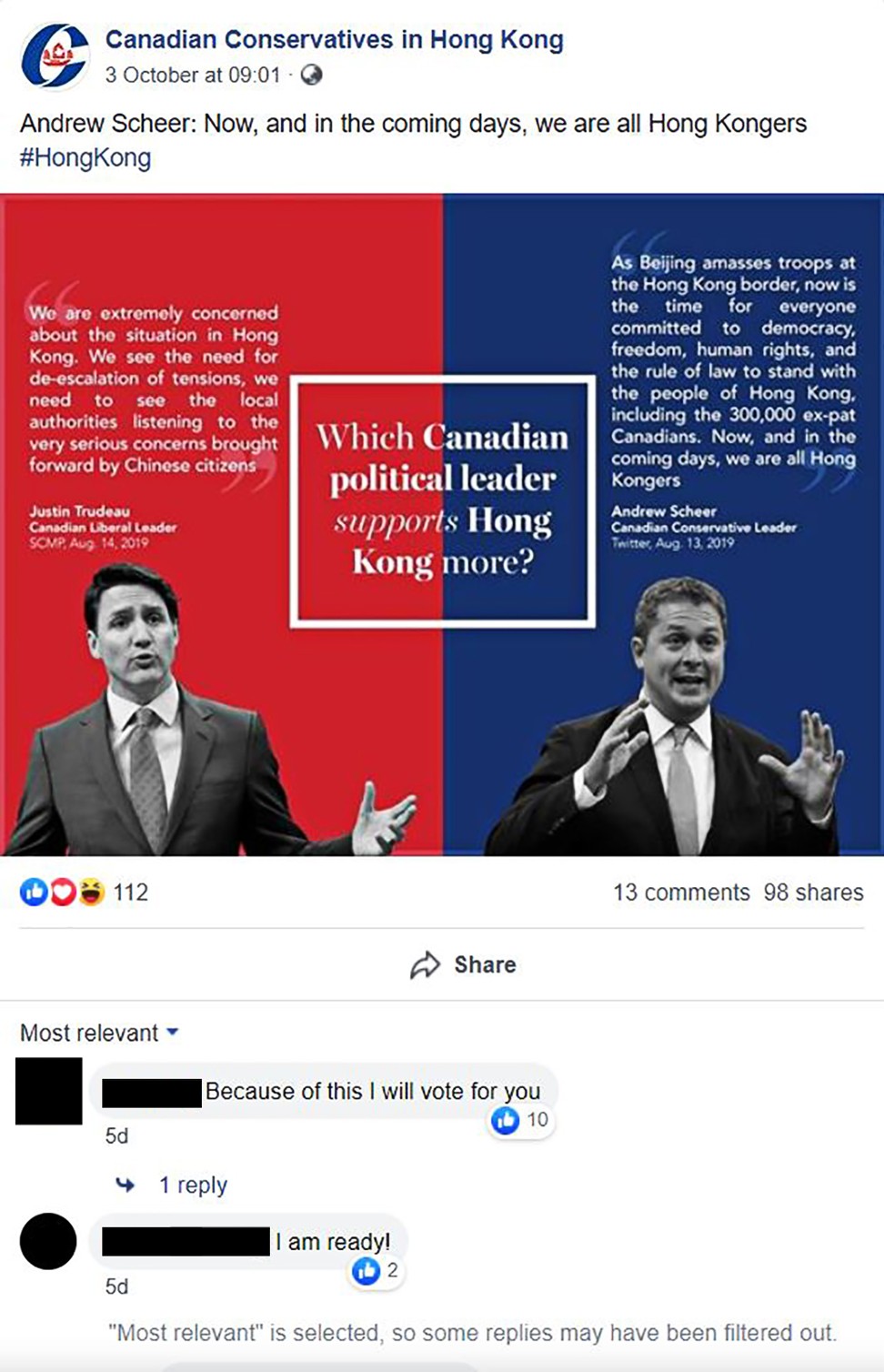
In past elections, such non-domestic issues might have been marginalised on the campaign trail but, amid one of the most tightly contested races of recent years, there are signs that Canadian politicians are beginning to wonder if voters like Fung might be just what swings the vote – and they have their eyes on a voter bank far larger than the 1,800 signatures on Fung’s petition.
The Supreme Court in January ruled that, for the first time in 25 years, Canadians living abroad would be able to vote in the federal election. That decision has paved the way for an estimated 300,000 Canadians living in Hong Kong – one of Canada’s largest diasporas outside the United States – to have their say in who becomes the country’s next prime minister.
Given that the Canadian consulate in Hong Kong estimates there are a further 500,000 people of Hong Kong descent living in Canada, it is perhaps not surprising that vote-hungry politicians might wonder if it is time to weigh in on the city’s affairs.
Even so, it is a high-stakes game to play – one in which a wrong move risks alienating an estimated 650,000 Canadian voters who were born in mainland China.
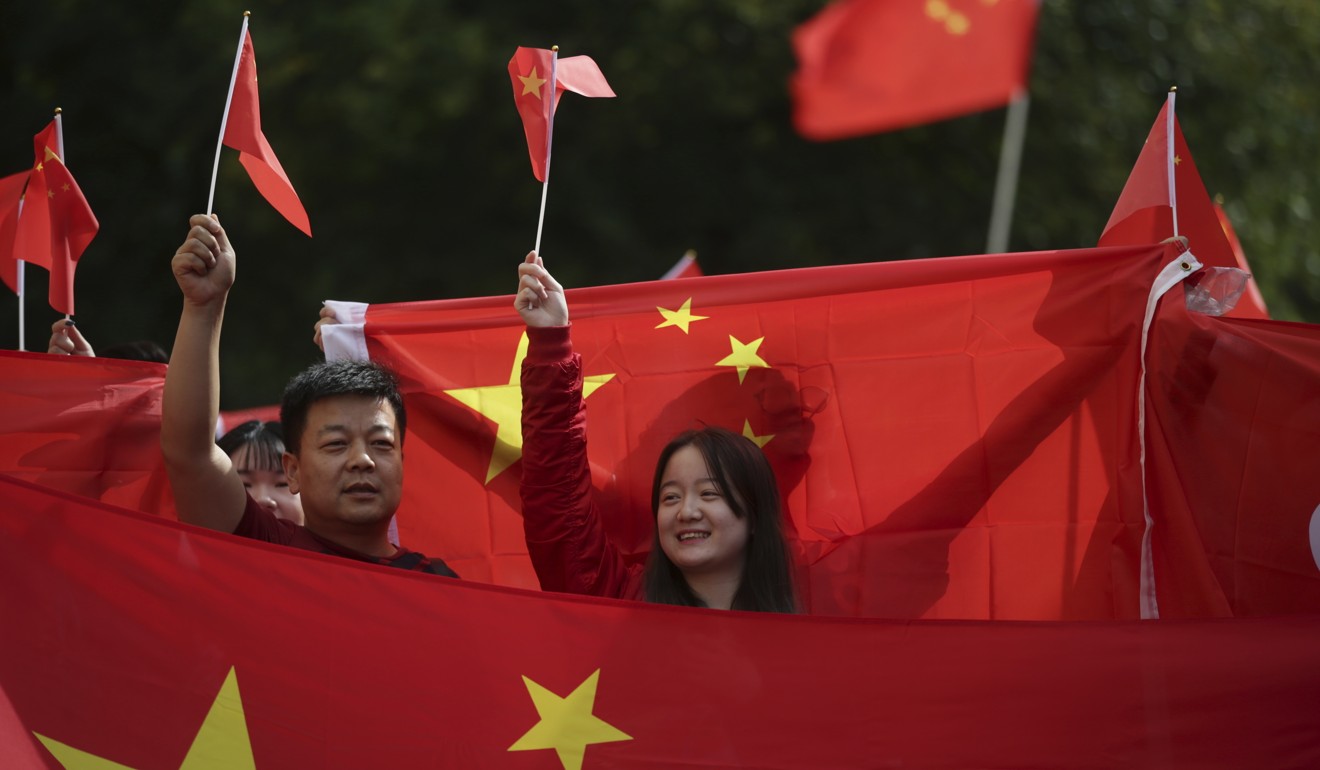
POLITICAL FOOTBALL
Conservative leader Andrew Scheer, whose party is neck and neck in the polls with the Liberal Party of the incumbent prime minister, Justin Trudeau, appears to be among the first to have latched on to the opportunity of this hitherto untapped vote bank.
In fact, in a tweet on August 13, he referenced it directly: “As Beijing amasses troops at the Hong Kong border, now is the time for everyone committed to democracy, freedom, human rights and the rule of law to stand with the people of Hong Kong, including the 300,000 expat Canadians,” he wrote.
“Now, and in the coming days, we are all Hongkongers.”
The tweet seemed to find its audience. “Because of this, I will vote for you,” wrote one commenter. “Canadians will vote for those who truly care about humanity and justice because it’s not just about Hong Kong. So many brainwashed Chinese around the world,” another posted.
Scheer has added to his pro-Hong Kong stance with a tough line against Beijing, criticising Trudeau for his softer stance on trade disputes and China’s arrest of two Canadians in what was widely seen as a tit-for-tat move following the December arrest of Huawei executive Meng Wanzhou in Vancouver.
Earlier this month, he vowed to pull Canada out of the China-backed Asian Infrastructure Investment Bank and he has previously urged Trudeau to bring a case before the World Trade Organisation regarding Chinese restrictions on Canadian agricultural imports.
Hong Kong protests to Uygur camps: how Chinese students became subject of scorn
“No longer will the Canadian government subsidise the Chinese government’s foreign policy,” Scheer said. “Justin Trudeau has done precisely nothing to show China that the government of Canada will stand up for ourselves.”
Adding to Scheer’s rhetoric is the work of grass-roots organisations like the officially unaffiliated Canadian Conservatives in Hong Kong, which held a two-day event in the Chinese city with former minister of foreign affairs John Baird to encourage expatriates to register to vote.
Andrew Work, president of the Canadian Club of Hong Kong – a non-partisan group which organised its own separate voting drive – said the Conservatives saw criticising Beijing and backing the Hong Kong protesters as playing both to the party’s base supporters and swing voters. Doing so was a calculated risk that voters with links to mainland China were less motivated by the issue.
“When you are aiming for the big win, you have to think about the wide game … There may be more energised voters in Hong Kong. And if there are potential voters in China, I doubt they are activated,” Work said.
Exactly what impact Scheer’s stance on Hong Kong has had on his party’s popularity is hard to measure, but momentum is clearly building behind the Conservatives. On October 7, a poll by CBC projected the party to win 33.8 per cent of the vote – within touching distance of the Liberal’s 34.8 per cent.
PIVOTAL VOTES
Barrett Bingley, a member of the Canadian Conservatives in Hong Kong, said that in such a close race, the votes of Hongkongers could prove pivotal, not least because Canadians of Hong Kong descent were concentrated in various “swing” districts, or ridings, of Vancouver and Toronto.
Xi’s channelling of Mao shows he’s about to get tough on Hong Kong
“A few hundred or few thousand votes in a riding – which may come from Hong Kong – could actually swing a district blue or red,” he said, referencing the party colours of the Liberals and Conservatives.
As of September 29, there were 2,015 Canadians living in Hong Kong who had registered to vote. And, according to researchers, many will vote for Scheer. Of 640 Canadians in Hong Kong questioned by the polling firm Mainstreet in late September, 57 per cent intended to vote Conservative; 23 per cent supported the Liberals; 10.8 per cent favoured the People’s Party of Canada; 6 per cent, the NDP; and 3 per cent, the Green Party. Support for the Quebec nationalist party Bloc Quebecois, the other of the six main parties contesting the election, was negligible.

Such numbers are relatively small compared to Canada’s overall population of around 37 million, but Conservatives are likely also to have their eye on the 210,000 or so Canadians – according to the 2016 census – who were born in Hong Kong. These live mostly in key urban constituencies within Ontario and British Columbia, which account for more seats in parliament and could therefore be seen as particularly valuable.
In Canada’s “first past the post” system, the country is divided into 338 seats. The candidate in each seat who gains the most votes – whether or not it is a majority of votes – is elected into the Canadian parliament. The party – or coalition of parties – that commands a majority of seats in parliament then forms the government.
HIGH-STAKES GAMBLE
Still, even if the calculations suggest voters linked to Hong Kong could have a significant impact on the election, analysts warn that Scheer is taking an electoral gamble in referring to the anti-government protests.
Not least among his problems are those 650,000 Canadian voters born in mainland China who could take offence at his anti-Beijing rhetoric.
Carrie Lam can defuse the Hong Kong protests by taking on the property tycoons
Just as problematic is that, even in Hong Kong, the protests are a deeply divisive issue. Put simply, pandering to the pro-protester crowd risks losing more votes than it gains.
Quite how divisive the issue can be has been demonstrated by recent clashes between various factions of the Chinese diaspora on Canadian university campuses.
The University of Toronto has been host to several protests and counter-protests led by students identifying as either pro-Hong Kong or pro-Beijing. This month, a “Lennon Wall” set up by students sympathetic to the Hong Kong protesters prompted clashes in Richmond, British Columbia.
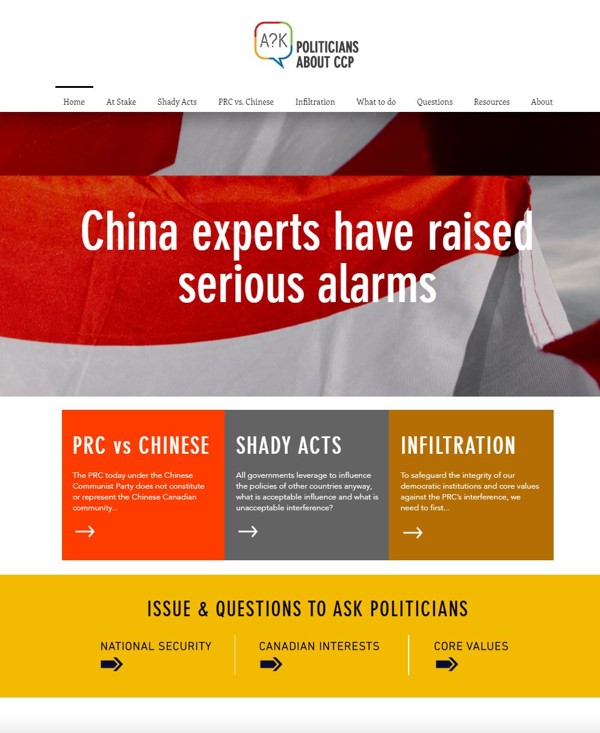
Early this month, a “redlist” began doing the rounds on Facebook, featuring Canadian politicians alleged to be “Chinese sympathisers”.
The list, created by the group Freedom Hongkongers in Toronto, is aimed at instructing those supportive of the Hong Kong protests on who to vote for, but it has attracted a backlash of its own.
Defence Minister Harjit Sajjan, who represents the Liberal Party in the Vancouver South riding, has been added to the list after attending a community reception marking the 70th anniversary of the Communist Party’s establishment of the People’s Republic of China.
Tung Chan, a former Vancouver city councillor, said this was unfair, as Sajjan was merely performing his duty as a candidate of the local riding. “He showed up, made a speech and left,” Chan said. “He didn’t even stay for dinner. So he was quickly trying to distance himself from the event.”
Lynette Ong, an associate professor of political science at the University of Toronto, echoed that sentiment. “I don’t think attending a gala celebrating the anniversary is equivalent to supporting the [Communist Party] and its position on Hong Kong,” she said. “Anything linked to China, critics will think is linked to the [Communist] Party.”
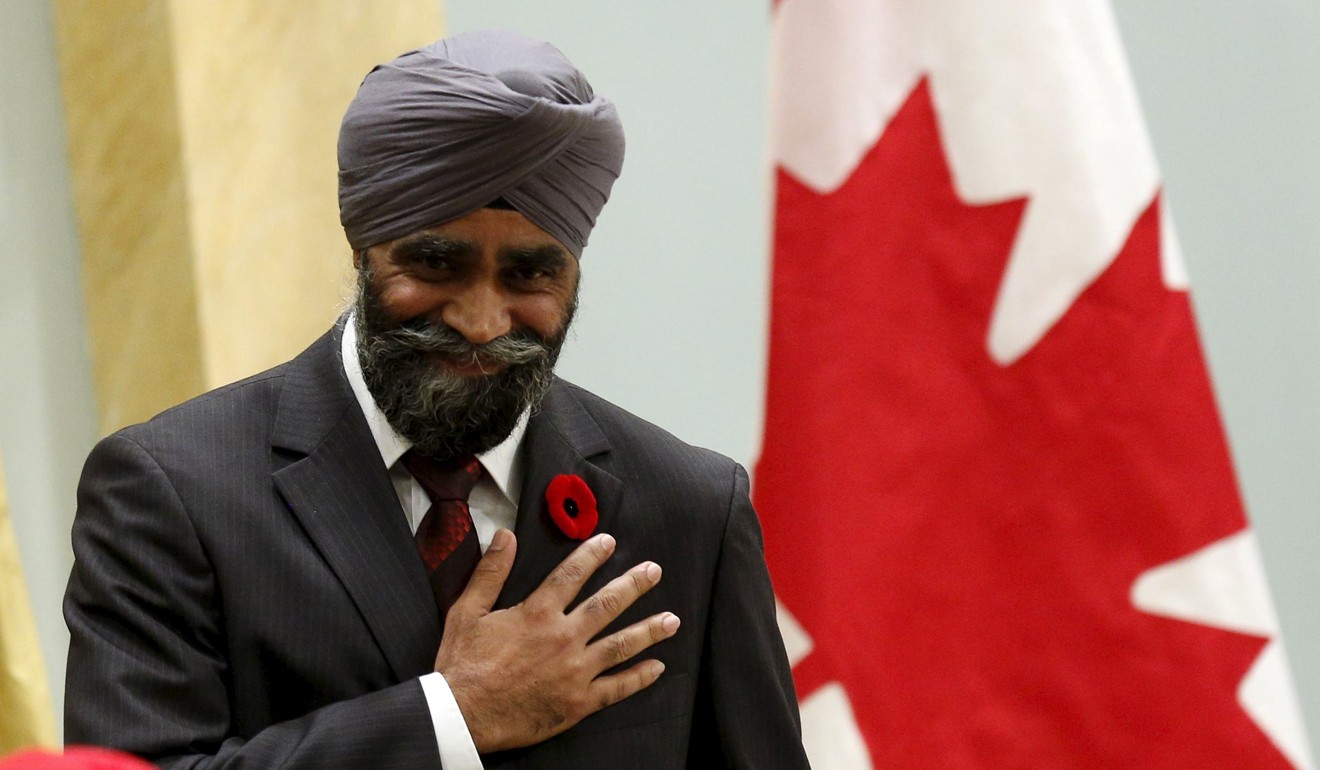
Xiaobei Chen, a sociologist specialising in Chinese-Canadian identity at the Carleton University in Ottawa, said the Conservatives’ stance on Hong Kong was opportunistic and even troubling.
“I don’t know how it will work for him, but Scheer could be using the Hong Kong situation to drum up votes. I find it [worrying] because it’s so exploitative.”
STEERING CLEAR
Other political parties, perhaps mindful of the danger they could be walking into, have shown signs of steering clear of the issue.
The campaigner Gloria Fung said that only the Green Party and the NDP had responded to her petition – though she was coy to detail their response, saying she would do so only when other parties had replied to her.
Trudeau, meanwhile, had mentioned the Hong Kong protests but not dwelt on them.
“We are calling for peace, for order, for dialogue … We certainly call on China to be very careful and very respectful in how it deals with people who have legitimate concerns in Hong Kong,” Trudeau told a press conference on August 13.
For Fung, this was not enough. “Pleas for calm and peace are not sufficient,” she said. “We will hold all parties accountable for what they have said and how they have acted on the Hong Kong issue.”
Yves Tiberghien, a political-science professor at the University of British Columbia, said the lack of outspokenness on the part of many candidates was because there was little that Canada could do regarding the matter.
“It’s a bit of a minefield,” he said.
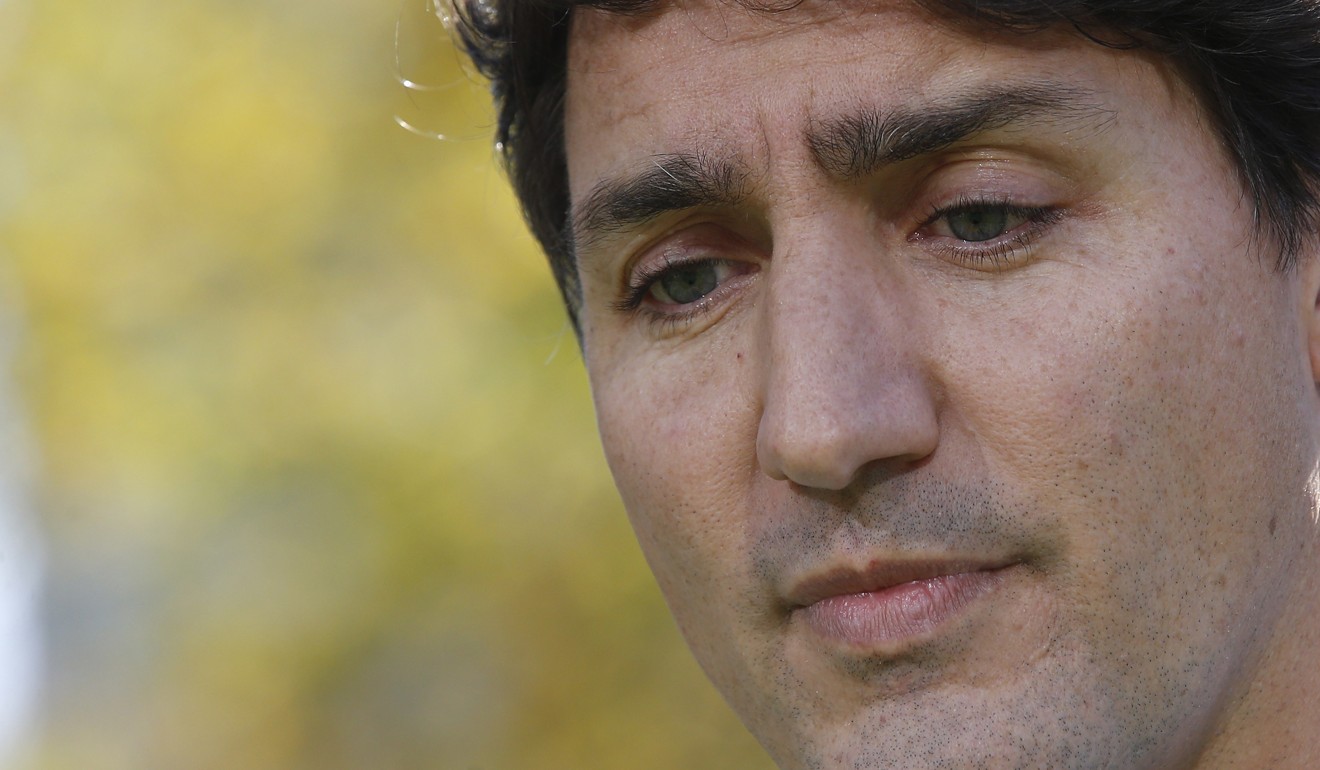
Taking a chance on such a minefield might seem an unnecessary risk when compared to domestic issues at the forefront of the electorate’s mind.
“Most of the candidates’ platforms are about tax dollars and climate change, or when they do talk about foreign policy it’s about supporting various international institutions and foreign aid,” said Chen of Carleton University. “Taking stances on Hong Kong is not a priority.”
Hong Kong needn’t fear the PLA, even if it is a US-China battleground
This Week in Asia reached out to all six parties to inquire about their views on the protests in Hong Kong. Only one replied.
The People’s Party, led by Maxime Bernier, said: “We are a young party founded only a year ago. We do not have sufficient resources to campaign outside Canada.”
AN OVERLOOKED CONSTITUENCY
Experts say some of the reticence to engage on the issue might be due to a long-held stereotype that Chinese-Canadians tend to be apolitical and unlikely to vote.
If anything, such views were compounded by the 2015 election, in which Trudeau’s Liberals won 39.5 per cent of the vote for a majority in parliament of 184 seats out of 338. Nationwide, only 67 per cent of Chinese immigrants, and 64 per cent of Canada-born Chinese turned up at the polls in 2015, according to Elections Canada.
Some of the lowest voter turnouts were in ridings with large Chinese populations. Richmond Centre, a suburban district of Vancouver where 44.3 per cent of the population are Chinese, saw the lowest voter turnout across British Columbia.

“I would say generally it’s a known fact that Chinese-Canadians do not come out in numbers to vote,” said Jun Ing, vice-president of the Chinese Benevolent Association, a community group in Vancouver.
And when they do turn up at the polls, Chinese-Canadians have tended to vote for the Liberal Party, in large part due to Trudeau’s father, the late prime minister Pierre Trudeau, who brought in Canada’s multiculturalism policy in 1971, and the Immigration Act of 1978 that prioritised family reunions, diversity and non-discrimination.
“When I first immigrated to Canada, my father would say vote Liberal,” said Jun Ing, adding that Chinese immigrants still felt indebted to the late Trudeau’s policies.
Still, there are signs the community’s vote is diversifying, with Chinese-Canadian voters caring more about domestic issues, according to Vancouver councillor Tung Chan. “There are more issues that the community cares about other than the Hong Kong situation. Taxation, immigration levels, fiscal policy, to name just a few. My sense is that the Hong Kong issue is a ballot question to only a limited few Chinese-Canadians.”
Vincent Cheung, a Hongkonger-Canadian living in Richmond, British Columbia, agreed, saying that while he supported the Hong Kong protesters, this was not a factor in how he would vote. “I’m voting for Trudeau,” he said, crediting the incumbent prime minister for legalising recreational marijuana and for his stance on indigenous rights.
Adrian Mei, a mainland Chinese-Canadian recent graduate who supports the Hong Kong protesters, also thought other matters, such as the environment, were more important. “I’m voting for the Green Party,” he said.

PLAYING WITH FIRE
Some experts, like Chen of Carleton University, warn that the ramifications of attempting to make the matter an election issue could extend far beyond October 21.
“I don’t think Scheer intentionally wants to fragment the community,” she said. “But I think it’s going to polarise and divide Hongkongers and mainland Chinese even more.”
She said there was a danger of contributing to a society in which “good Chinese-Canadians” and “bad Chinese-Canadians” were pitted against one another, similar to the “good, assimilated, Muslim” versus “bad, terrorist, Muslim” rhetoric in the United States.
With the party over, Beijing needs to see progress on Hong Kong, US trade talks
“I think in the context of racism and minority management, this is very worrying,” she said. “Whether we affiliate with Hong Kong or China, we need to think about this larger issue,” said Chen, likening the situation to the anti-communist cold war mentality of the 1980s.
For the Chinese Benevolent Association’s Jun Ing, who sees himself as a “pro-China” supporter, it was no surprise that Hong Kong was not on the agenda for the televised Party Leaders’ Debate on October 7. After all, how could the candidates broach a topic so divisive few Chinese-Canadians dared to talk about it in public?
“These days in Vancouver, we’re very careful about what we say about Hong Kong,” he said. “You never know what side someone is on.” ■

